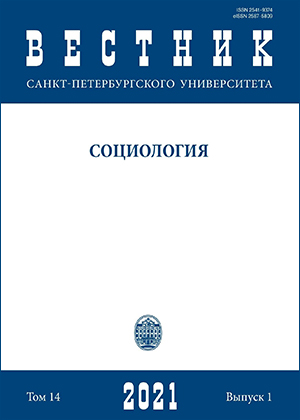Applied knowledge in the humanities (based on the manuscript of N.I.Kareev “General methodology of the humanities”)
DOI:
https://doi.org/10.21638/spbu12.2021.101Abstract
The purpose of the article is to introduce a fragment of an unpublished monograph by sociologist and historian Nikolay I.Kareev titled “General methodology of the humanities” (1922). The book was published only in fragments and needs further updating in terms of its significance for the history of Russian sociology. In the publication of archival documents and accompanying annotations, a fragment of the final seventh chapter “Normative and Applied
Knowledge in the Humanities” is analyzed. In this text, the scholar turned to the complex theoretical issues of defining the role, function and correlation of fundamental and applied sciences. The text analyzes N.I.Kareev’s classification — the division of scientific knowledge into theoretical, normative and applied. By carefully examining applied knowledge, he revealed it in two aspects — vulgar and pragmatic utilitarianism. Regarding the first, he concluded that the absolutization of the utilitarian point of view is dangerous for science itself, since it makes the development of science dependent on particular goals, including party interests, and subordinates science to the changing circumstances of the moment. On the other hand, theoretical knowledge can also have value as the most reliable basis for any practical discipline. The importance of applied knowledge is due to the fact that true (factual) knowledge about society can only be obtained by inductive means, i. e., in order to cognize social reality, applied sciences must precede theoretical ones. The meaning of applied knowledge is that it, unlike theoretical knowledge, is aimed at transforming nature or society.
Keywords:
N. I. Kareev, humanities, fundamental sciences, applied knowledge, utilitarianism
Downloads
References
References
Downloads
Published
How to Cite
Issue
Section
License
Articles of "Vestnik of Saint Petersburg University. Sociology" are open access distributed under the terms of the License Agreement with Saint Petersburg State University, which permits to the authors unrestricted distribution and self-archiving free of charge.





